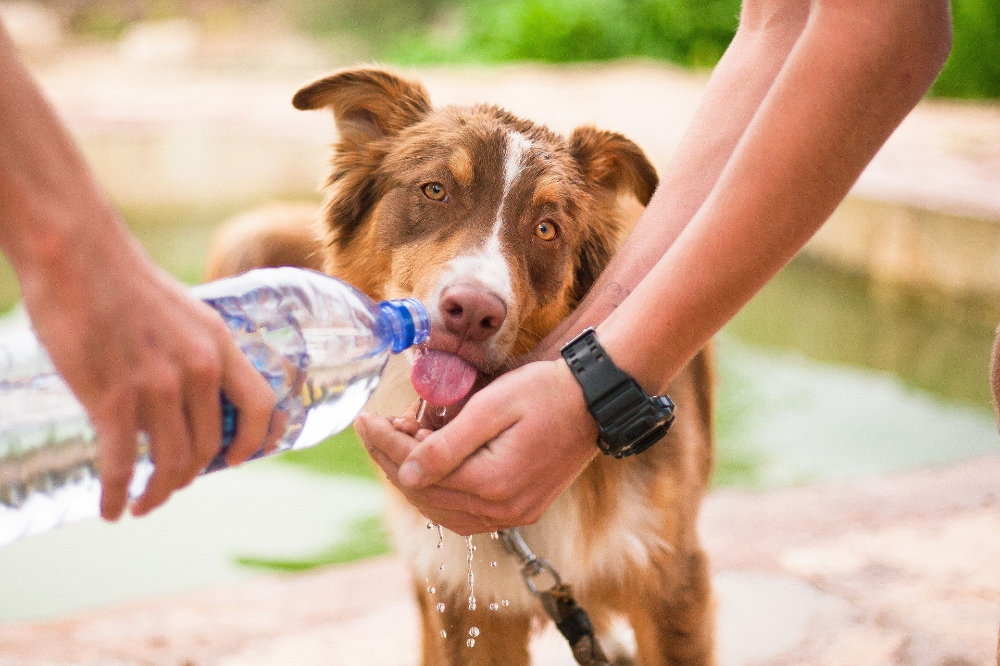Kidney Care for Dogs: How to Improve Kidney Function in Dogs? (Vet Advice)
Written by:
Author: Dr. Joanna De Klerk
Dr. Joanna de Klerk is a professional Clinical Veterinarian. Member of the Royal College of Veterinary Surgeons UK and a member of the South African Veterinary Association. Graduated with a Master of Science in Tropical Animal Medicine in 2018. Professional author, she has been writing in scientific journals, and also several book series. Joanna loves to enjoy time with her young daughter and family in her free time.
View all 10 articlesLearn about our editorial process and veterinary review board.
Viewed: 754
Updated on: 02/15/2022
The kidneys are vital organs in the body, and without them, life would be impossible. So, it’s essential to look after them, and as your dog can’t make that decision for himself, you have to provide him with the appropriate healthcare to keep functioning effectively into old age. You can keep the organs healthy, which are easy to implement into your dog’s daily life.
What is the function of the kidneys?
The kidneys play many essential roles in maintaining the body’s homeostasis. They are involved in many different aspects of the body, not simply just producing urine:
- Filtering out waste products: This organs filter excess electrolytes, waste products from the metabolism processes within the body, medications, toxins, and excess water, which creates urine. The urine then travels down to the bladder ready to be voided out the body.
- Stimulating red blood cell production: The kidneys produce a hormone called erythropoietin. This hormone stimulates the bone marrow to increase red blood cell production. This is really important, as red blood cells carry oxygen around the body to other cells to create energy. Without erythropoietin, the blood would be anemic.
- Maintaining blood pressure: This organs produce hormones that signal blood vessels nearby them to constrict or dilate. When they constrict, the body’s blood pressure increases, and when they dilate, it decreases.
What causes Kidney Disease in Dogs?
Unlike cats, dogs do not usually suffer from age-related degeneration of the kidneys, known as CKD. Dogs with the disease usually develop acute kidney disease, which has an inciting cause and usually develops much quicker.
The most common causes of acute disease include:
- Toxins and poisons
- Chronic use or overdoses of medications
- Poor diet
- Infections
- Stones
- Cancer
READ MORE: Best Dog Food for Dobermans
Signs of Kidney Disease in Dogs
If your dog has kidney problems, it may come on quickly or slowly over a long time, depending on the cause of the disease. The most common symptoms are:
1. Polyuria and polydipsia
These mean excess urination and excess drinking. When this organs are not working well, extra water is lost into the urine, which increases the volume of the urine and needs to urinate. Excess water loss then triggers an increase in thirst.
2. Vomiting
When these organs do not work well, waste products such as urea build up in the blood. This can cause nausea and vomiting.
3. Lack of appetite
Nausea can also lead to picky eating.
4. Lethargy
Dogs who feel unwell from kidney disease usually sleep more and don’t wish to interact with their owners or other pets.
5. Bladder infections
Normal urine is concentrated and slightly acidic, which helps fight bacteria. However, when the urine is dilute due to poor health, bacteria can easily grow and cause infections.
What is bad for a dog’s kidneys?
Even though some dogs who end up with organs disease do so due to no known cause, several things are particularly bad for your dog’s kidneys. Exposure to these can significantly increase the chances of developing disease:
- Toxins and poisons: In most households, toxins and poisons are present, such as household cleaning products, garage items, and certain foods. There are also toxins in the environment that can cause kidney diseases like algae and certain plants. Toxins and poisons cause damage both directly, and indirectly, through the need for increased filtration of them out the body.
- Chronic medicines: Like with toxins, this organs need to filter out medications, and when given chronically, the kidneys will have to work harder over a long period, placing extra strain on them.
- Infections: Some serious vaccinate diseases cause kidney failure, such as leptospirosis. Other milder infections can track up from the bladder and result in secondary infections which can potentially become serious.
- Poor diet: One of the kidneys’ functions is to balance the electrolytes in the blood, to ensure they are at the right levels, and filter out ones which are too high. Diets that are unbalanced with excess phosphorus, calcium, sodium, and potassium can put excess strain on the organs.
How can I improve my dog’s kidney health?
If your dog does not have damaged kidneys, you cannot improve their health, but you can implement daily actions to help prevent them from deteriorating, which is further discussed in the next section.
If your dog has disease, there are plenty of ways to improve the organs’ health and function:
- Improve water intake:Increasing the water intake increases the filtration rate of the kidneys. This helps avoid and reduce inflammation and increase the filtration of backed up waste products in the body. Simple ideas to increase fluid intake include placing more water bowls around the house, adding water to the food, or feeding tinned food instead of dry kibble.
- Kidney disease diet: When your dog has disease, he will need to be on a diet that is low in protein, as protein can exacerbate inflammation. The disease diet is also low in phosphorus, as phosphorus tends to back up in the blood during kidney disease with major consequences on the body.
- Medication: Your veterinarian may prescribe drugs to help improve your dog’s health. The aim is to improve the filtration rate of the kidneys and decrease blood pressure.
- Treat the underlying cause: If the underlying cause of the failure has not been diagnosed and treated directly, then this will hinder making a full recovery. As discussed earlier, disease in dogs often has an underlying cause, unlike cats where kidney disease is often due to age-related degeneration. Therefore, finding out what that underlying cause is, and treating it is essential to improve your dog’s health.
READ MORE: Best Senior Dog Food Ratings
What food is good for Dogs with Kidney problems?
There are many kidney disease diets on the market, so choosing one can be difficult. Taking advice from your veterinarian is important and will help you make your decision. A diet should be:
- Formulated with lower levels of sodium and phosphorus.
- Low in protein, but the protein present must be of high quality to help build lean muscle mass.
- Highly palatable, since most dogs with disease have a poor appetite.
- Contain omega oils to aid in the reduction of inflammatory processes in the body.
How do I prevent Kidney problems?
There are some ways in which you can reduce the chances of your dog having kidney problems, although it is impossible to prevent it entirely. Most ways of preventing problems are part of being a good dog owner, and the part of day-to-day dog-owning life:
1. Feed your dog a quality diet
This will prevent his organs from having too much stress on them from filtering out excess electrolytes and nutrients.
2. Get your dog vaccinated
Yearly vaccinations will ensure your dog will not pick up deadly diseases such as leptospirosis, which can cause disease.
3. Reduce toxin exposure
Ensure possible toxins are hidden away in cupboards or the garage. If you use potentially dangerous items around the house, be sure to minimize exposure, such as closing the toilet seat after cleaning. Also be aware of foods in the house that may cause kidney damage, such as grapes and raisins.
4. Seek ways to reduce medications
If your dog is on chronic medication, seek ways to reduce the dose so that his kidneys do not have to work so hard. For example, if your dog is on pain medication for arthritis, then this could be reduced by using joint supplements, or exploring non-medicated pain relief options, such as acupuncture, physiotherapy, and hydrotherapy. Your veterinarian will be able to advise you on what your options are.
Pick up on signs early
Noticing the signs of kidney disease and treating it early on will prevent excessive loss of function. However, to achieve this, knowing the signs of disease is vital.
Conclusion
Kidney disease is not pleasant and therefore it is important to look after your dog’s health to help prevent kidney disease as much as possible. Most steps that lead to healthy organs will probably be part of your day-to-day routine with your dog already. Therefore, looking after your dog’s kidneys while they are still functioning should be easy.
 Dog Veterinary Tips Tear Stains on Dogs: How to get rid of tear stains on dogs? (Vet Advice)
Dog Veterinary Tips Tear Stains on Dogs: How to get rid of tear stains on dogs? (Vet Advice) - 104
- 0
 Dog Veterinary Tips Sick Puppy 101: How to know if your Puppy is Sick? (Vet Advice)
Dog Veterinary Tips Sick Puppy 101: How to know if your Puppy is Sick? (Vet Advice) - 1438
- 0
 Dog Care White Specks In Dog Poop: What Are The Little White Specks In Dog Poop? (Vet Advice)
Dog Care White Specks In Dog Poop: What Are The Little White Specks In Dog Poop? (Vet Advice) - 659
- 0
 Dog Veterinary Tips Dogs Seasonal Allergies: Causes, Symptoms, Treatment, and Prevention
Dog Veterinary Tips Dogs Seasonal Allergies: Causes, Symptoms, Treatment, and Prevention - 355
- 0
 Dog Veterinary Tips Why is my Dog throwing up: Causes and Preventing (Veterinary Advice)
Dog Veterinary Tips Why is my Dog throwing up: Causes and Preventing (Veterinary Advice) - 23424
- 5
 Dog Care Why Is My Dog Bleeding From Its Butt? Causes and treatment of rectal bleeding in the dog
Dog Care Why Is My Dog Bleeding From Its Butt? Causes and treatment of rectal bleeding in the dog - 22076
- 0
 Dog Care My Dog Keeps Scratching His Mouth: Reasons Why Your Dog Scratching Face
Dog Care My Dog Keeps Scratching His Mouth: Reasons Why Your Dog Scratching Face - 17561
- 1























